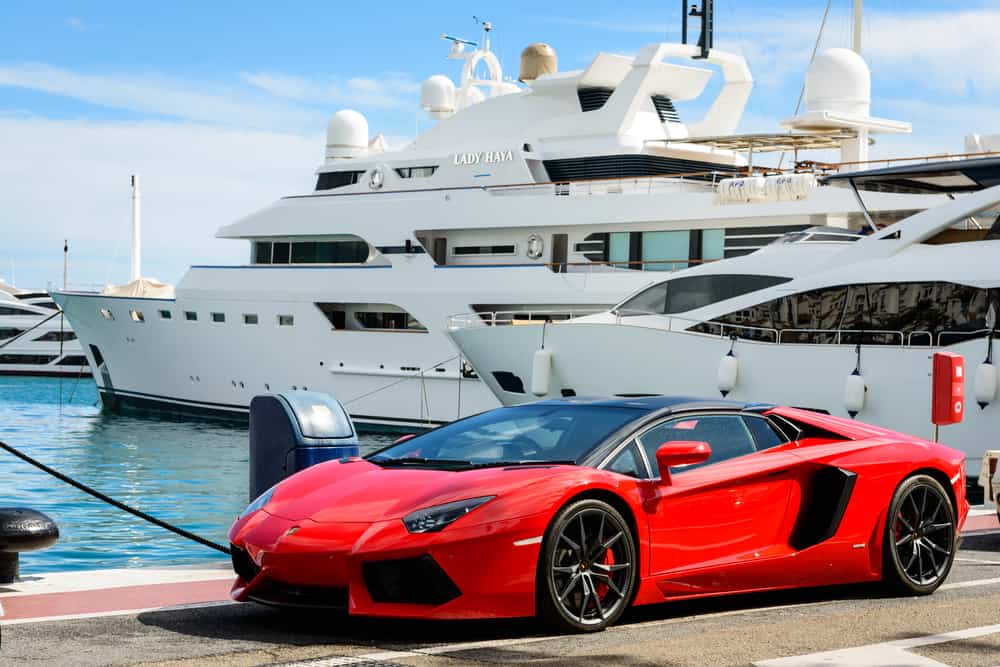Should There Be A Wealth Limit? Pros and Cons of The Wealth Cap
The so-called wealth cap idea has gained momentum in recent years due to the overwhelming rise in the number of ultra-wealthy and numerous claims that this rise results in an unhealthy environment. With great wealth comes even greater power, but does this justify introducing limitations on someone’s income? Here is a look at the pros and cons of wealth limitations.
Can you be too rich?

Rapid increases in the fortunes of the super-rich and accelerating inequality have raised more questions regarding wealth, including whether a person can be too rich and whether the ultra-rich deserve all the wealth and power that follows. We were taught that one cannot be too rich, but many things point in the other direction.
The case against extreme wealth

This topic is the central point of Ingrid Robeyns’s book Limitarianism, which she wrote as a philosopher at Utrecht University. In her book, Robeyns explains how the ultra-rich keep the rest of us poor, giving evidence that a wealth cap should be introduced. She also deals with wealth concentration and the fact that the poor will reclaim the poor since the rich take a massive slice of the pie.
Wealth cap vs. wealth taxes

The definition of wealth tax can mean several things, including taxes on one’s net wealth or the market value of one’s total owned assets minus liabilities. Colombia, France, Spain, and Switzerland have taxes for the ultra-rich. In the US, this is the highly politicized question often championed by the far left.
Wealth cap is far more rigorous

Similarly, the wealth cap can have several meanings, one of the most popular being confiscating and redistributing wealth above a specific limit. Helping those less fortunate would be a side effect since excess wealth is considered to undermine democracy.
What do people think about the wealth cap?

Most Americans do not support the wealth cap except one generation—the millennials. A survey by Fast Company-Harris Poll found that 33% of millennials are pro-wealth cap, which is considerably more than any other generation. For example, 17% of Gen X support this idea, while only 2% of baby boomers are pro. Additionally, around 30 percent of millennials are okay with the idea.
The questions of ethics

One of the most critical questions regarding limiting wealth includes ethical and political limits. The first question is more complex because it is left to interpretation, and it wonders how much a person needs to live a lavishing lifestyle. The second is more concise and includes lobbying and influencing the political landscape.
But who’s to say how much is too much?

While many argue that a wealth cap or any limitation is a good idea, no one can answer how much is too much. Some say that anything beyond 200 million is extremely wealthy, while others are more invested in billionaires. Since the wealth cap would include policies, these numbers would have to be finalized, which seems to be mission impossible.
The case against wealth caps

Apart from the obvious question of who would be considered too rich, there are numerous issues regarding the wealth cap. One of the main fears is who would ensure the wealth spreads to those most in need. But there’s another important argument against it.
The question of innovations

The other vital question concerns innovations. Despite how we feel about the ultra-wealthy, their money is behind all invocations, from the tech industry to the development of vaccines, medications, etc. If there were a wealth cap, it would remain unclear whether governments would use the money for these causes.
That’s why taxing the ultra-rich seems more probable

Some of the world’s wealthiest, called Patriotic Millionaires, support the idea of taxing the ultra-rich. They signed a letter to world leaders urging them to impose higher taxes on the wealthy. Phil White, a retired business owner, said this should be an act of the super-rich doing their part and being proud of it.
The arguments against taxing the richest

For one, a wealth tax, unlike every other form of individual federal tax, would be levied based on a family’s worth rather than the income they received in a given year. Some argue it violates the long-standing American principle that we’re allowed to build wealth and grow the value of assets.
Examples from other countries

Take France, for example. Critics say the wealth tax drove away wealthy people to other countries, resulting in financial loss. They added no evidence that the tax reforms benefited the French people. French law focused on real estate valued at €1.3 million or above, not on one’s entire fortune.
More European countries joined in taxing the wealthy

Switzerland, Norway, and Spain joined the quest to tax the richest. Around 70 super-wealthy individuals left Norway due to wealth taxes. Scotland could also join these countries, though it is still uncertain.
The US proposal

Under Biden’s proposals, a 25% tax on those with more than $100 million would raise $500 billion over ten years. The idea is to fund benefits such as child care and paid parental leave. The President’s State of the Union speech addressed the issue, and he stated that the future is in the middle class.
Global wealth inequality

Globally, the poorest 50% of the global population now have only 2% of total net wealth. The richest 10% hold 76%. The wealthiest 1% have around two-thirds, including two-thirds of new wealth created since 2020.
Even 5% would make a difference

An Oxfam report in 2023 suggested that a 5% tax on the world’s multimillionaires and billionaires could raise $1.7 trillion annually, which would be enough to bring out 2 billion people from poverty.
Whose problem is poverty?

People also want to know more about other issues. No one is arguing that poverty is not a massive issue, but why should we care about the rich? Why should the wealthiest take the “blame” for world poverty? While inequality is an issue, it is not a problem for those on the top.
The rich create jobs

Another popular opinion is that the wealthiest create more jobs, so they are already helping those below them financially. While they clearly give away a fraction of their wealth, it is still something. There are fears that a wealth cap could have the government effectively lock this wealth in bureaucracy.
Experts are divided

If you find this topic confusing, you are not alone. Even researchers are confused, with some seeing it as an opportunity for a better society while others are afraid that these policies would be costly but inefficient. Since the expectations are that the rich will only get richer, this is just the beginning of the conversations regarding wealth taxes and wealth caps.
Read More

1: 20 Expenses Parents Should Stop Covering for Their Adult Children
2: Teacher fired after refusing to use student’s preferred pronouns scores major legal victory







